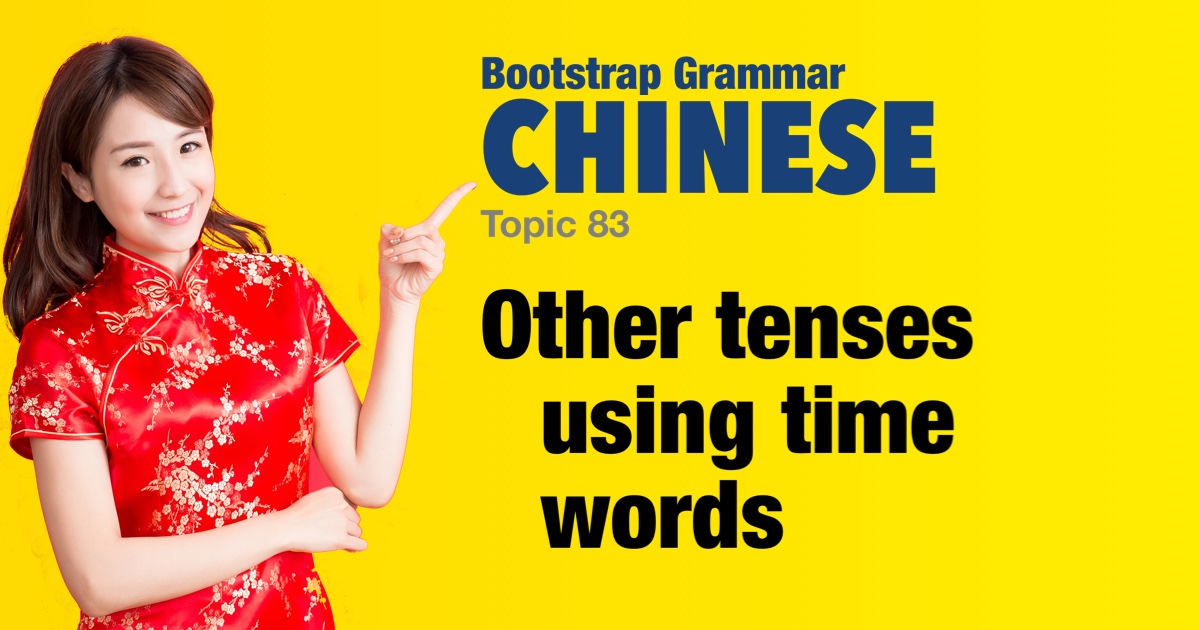Chinese grammar - Other tenses using time words |
|||
|
|||
We previously saw that in Chinese, using a verb with a past time word places the phrase in the past tense. Likewise, sentences can also assume the present and future aspect using the plain form of the verb with an appropriate time word. |
| Examples: | |
|
你晚上做作业。
nǐ wǎnshàng zuò zuòyè. You do your homework at night. |
|
|
他们早上跑步。
tāmen zǎoshang pǎobù. They run in the morning. |
|
|
妈妈下午买菜。
māma xiàwǔ mǎi cài. Mom buys groceries in the afternoon. |
|
|
爸爸中午吃饭。
bàba zhōngwǔ chī fàn. Dad eats lunch at noon.
|
|
|
他明年读大学。
tā míngnián dú dàxué. He will attend university next year.
|
|
|
她明天去北京。
tā míngtiān qù běijīng. She is going to Beijing tomorrow. |
|
|
我们周末看朋友。
wǒmen zhōumò kàn péngyǒu. We visit friends on weekends. |
|
|
你每天学习中文。
nǐ měitiān xuéxí zhōngwén. You study Chinese every day. |
|
|
她每周打扫房间。
tā měizhōu dásǎo fángjiān. She cleans her room every week.
|
|
|
我下个月去旅行。
wǒ xià gè yuè qù lǚxíng. I am going to travel next month. |
|
|
我们这个月有考试。
wǒmen zhè gè yuè yǒu kǎoshì. We will have exams this month. |
|
|
妈妈明早去市场。
māma míngzǎo qù shìchǎng. Mom is going to the market tomorrow morning.
|
|
|
他今晚做晚饭。
tā jīnwǎn zuò wǎnfàn. He is making dinner tonight. |
|
 |
|



